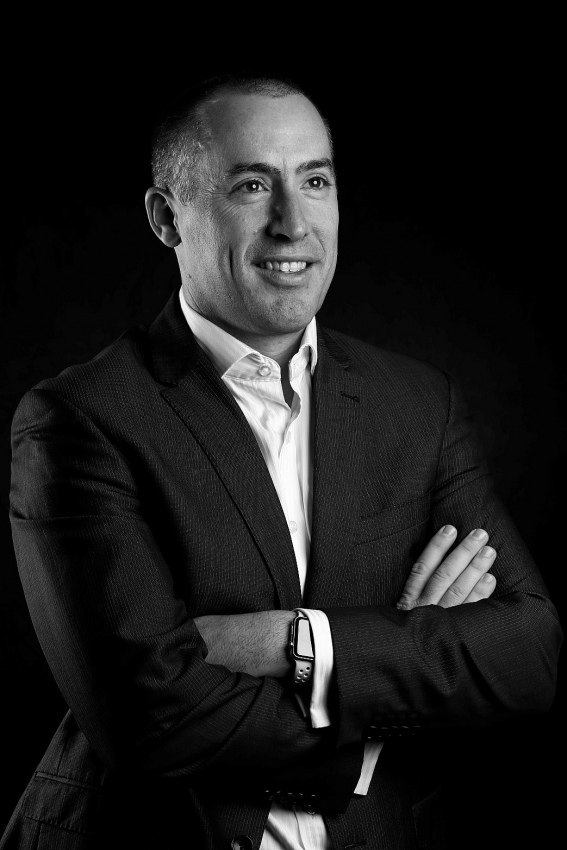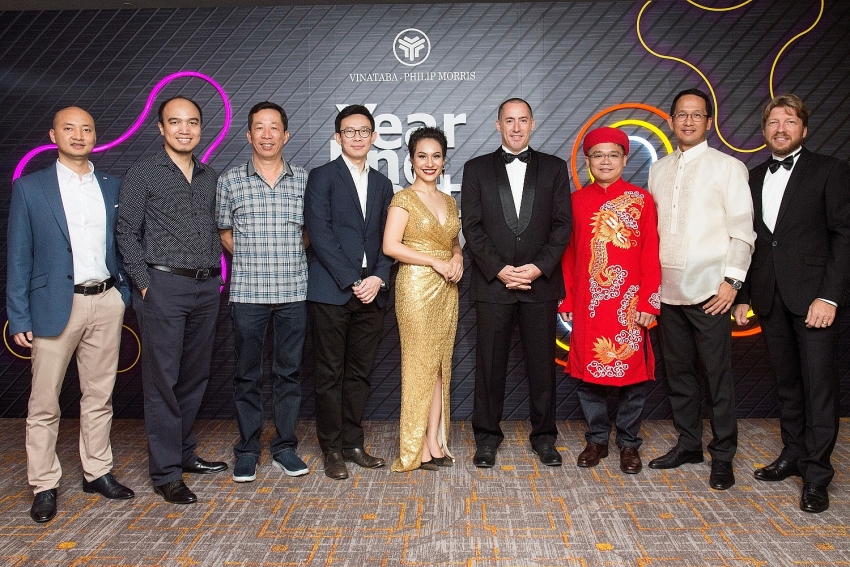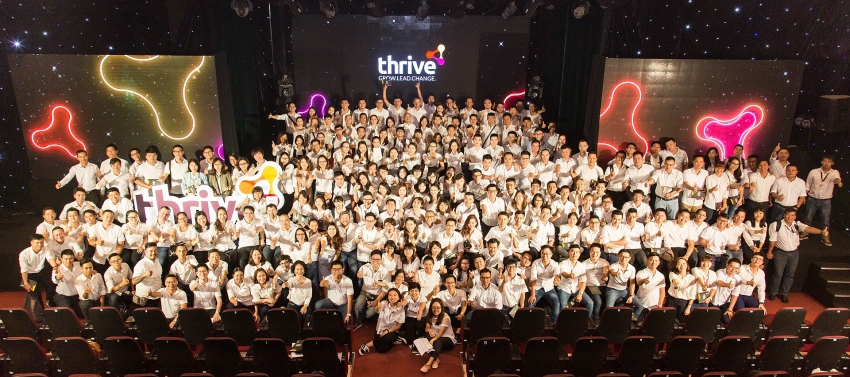Philip Morris International talks smoke-free future
 |
| Philip Morris International talks smoke-free future |
PMI was in the first wave of American companies to enter during the 1990s, and 2019 will commemorate the company’s 25th anniversary in Vietnam. What have been the highlights during this time?
We are very proud of the partnership we have built with Vinataba, which now spans more than two decades. The partnership has delivered a valuable mesh of international and local experience and know-how, bringing benefits across many aspects of the business, including agronomy, manufacturing technology, product innovation, supply chain, and sales force capability.
We are also extremely proud of our track record of recruiting and developing local talent. We place high expectations on ourselves to create an environment which is a truly special place to work. We have two wonderful offices in Ho Chi Minh City and Hanoi, provide unique and stretching experiences to grow our employees, accelerate know-how transfer through importing international talent, and exporting the best Vietnamese talent we have.
In recent years, we assigned Vietnamese employees to our affiliates in Singapore, Indonesia, Thailand, Malaysia, Japan, the Philippines, and South Africa. I am proud to say our employees are amongst the best in PMI.
Foreign-invested enterprises are widely recognised for their contribution to the strong economic performance of Vietnam. You have touched on the importance PMI places on building capability and careers, but what other benefits have PMI delivered to Vietnam?
Since our joint venture (Vinataba-Philip Morris) was established in 2010, we have consistently been a top tax payer—contributed over VND1 trillion ($44.15 million) per annum to the state budget from 2012 to 2016, and accounting for more than 10 per cent of Can Tho’s budget in 2017. VPM creates employment opportunities across a variety of work streams, including agronomy, manufacturing, sales, and distribution.
In every country we operate, we assign importance to giving back to the community. Since entering Vietnam, we have partnered with Red Cross on a variety of initiatives, including building 350 compassionate houses in provinces such as Thua Thien-Hue, Danang, Quang Nam, Ninh Thuan, and Can Tho as well as two new schools in Can Tho and Phu Yen, supplying clean water to 1,100 households, providing training to disadvantaged women in Can Tho to improve their employment opportunities, and supporting the lives of local residents, disaster and emergency relief for thousands of victims.
 |
Vietnam introduced the first Law on Foreign Investment 30 years ago and continues to evolve to improve the business environment. As a US investment veteran in the country, what else should Vietnam do to improve the investment climate, attract foreign investors, and strengthen the foreign-domestic partnerships such as the Vinataba-Philip Morris joint venture?
I agree that the opportunities for foreign investors in Vietnam continue to strengthen. For example, I applaud the Vietnamese prime minister’s decision to further divest the state’s capital of cigarette manufacturing companies, and PMI views this as an opportunity to expand our investment further in Vietnam. The state divestment of state-owned enterprises' (SOEs) can only help the growth of the economy, by increasing healthy competition, enhancing innovation and technology development, and by delivering employment opportunities.
As a long term investor in Vietnam, transparency, consistent and predictable regulatory, fiscal, and trade policies, including conditions which deliver a more level playing field between SOEs and foreign-invested companies, will further strengthen the climate for investment for investors such as PMI.
PMI’s business strategy revolves around a ‘smoke-free’ future. How has this impacted your business results?
In 2017, almost 13 per cent of PMI’s total net revenue came from smoke-free products, growing from $64 million in 2015 to $3.6 billion in 2017. If PMI’s smoke-free business was a stand-alone company, it would rank above 15 per cent of the companies in the S&P 500 Index by net revenue —after just three years. But this has not happened overnight.
 |
Over the last decade, PMI has invested more than $4.5 billion into research, product development, scientific substantiation, and adult smoker understanding. We have over 400 scientists, engineers, and technicians who have been developing a portfolio of alternatives to cigarettes—products without the harmful smoke, yet will satisfy the more than one billion existing smokers in the world today.
We understand the millions of adults smoking cigarettes today are looking for less harmful alternatives. Our smoke-free products provide them this choice. 2017 was a milestone year in coming closer to realising our vision of a smoke-free future.
What are PMI's medium and long-term investment strategies in Vietnam that meet both Vietnam's economic growth and the company’s global vision of this smoke-free future?
Our business is rapidly transforming. Ten years of investment in research and development has equipped us to create and test a range of smoke-free products that offer a much better choice for the millions of smokers who do not quit. Our ambition is to have one out of every three of our consumers switch to better alternatives to cigarettes by 2025. That is an estimated 40 million men and women around the globe.
In Vietnam, there are an estimated 17 million smokers today. Many of them are seeking better alternatives to cigarettes, and it is important that they have adequate information and legitimate access to smoke-free products. In order to make this happen as quickly as possible, we cannot go at it alone. We look forward to working closely with the Vietnamese government and public health community, and encourage them to investigate thoroughly how scientifically substantiated smoke-free products can be used as a complementary public health strategy alongside smoking prevention and cessation.
PMI want to be in a position to stop selling cigarettes altogether in the future, and every employee is doing their utmost to bring this to fruition. Our team in Vietnam is determined to play our part in delivering on this global ambition.

What the stars mean:
★ Poor ★ ★ Promising ★★★ Good ★★★★ Very good ★★★★★ Exceptional
Related Contents
Latest News
More News
- The next leap in Cloud AI (December 11, 2025 | 18:19)
- Vietnam’s telecom industry: the next stage of growth (December 11, 2025 | 18:18)
- Five tech predictions for 2026 and beyond: new era of AI (December 11, 2025 | 18:16)
- CONINCO announces new chairman and CEO (December 10, 2025 | 11:00)
- How AWS is powering the next-gen data era (December 09, 2025 | 13:14)
- Outlook in M&A solid for Singapore (December 08, 2025 | 10:31)
- Vietnamese firms are resetting their strategy for global markets (December 05, 2025 | 17:04)
- LPBank Securities accelerates AI and data innovation with AWS (December 05, 2025 | 09:00)
- Improving traceability capacity with Zebra Technologies (November 26, 2025 | 10:08)
- Ho Chi Minh City engages 500 CEOs in dialogue on building global megacity (November 25, 2025 | 16:00)

 Tag:
Tag:



















 Mobile Version
Mobile Version